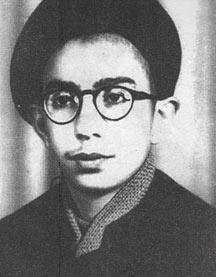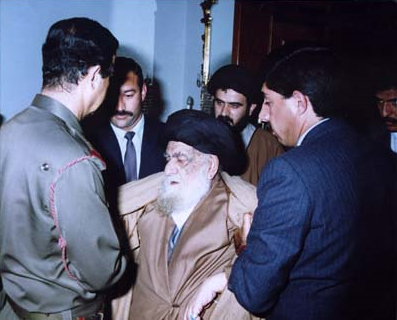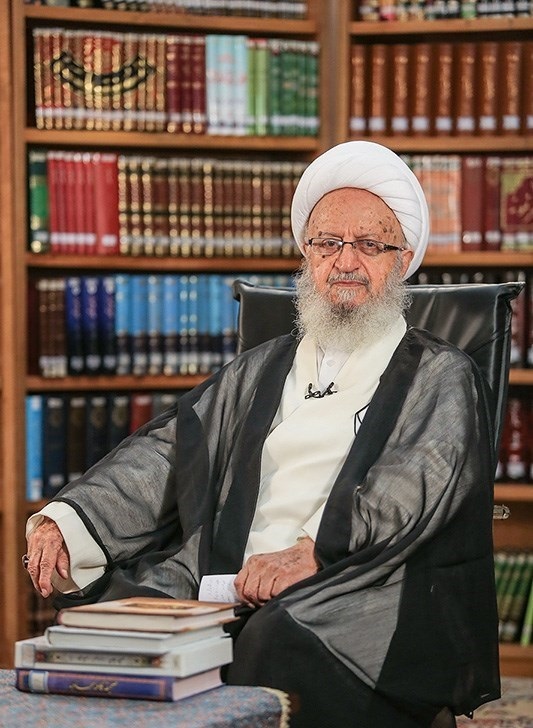|
Islamic Hygienical Jurisprudence
Purity ( ar, طهارة, ''ṭahāra(h)'') is an essential aspect of Islam. It is the opposite of ''najāsa'', the state of being ritually impure. It is achieved by first removing physical impurities (for example, urine) from the body, and then removing ritual impurity by means of ''wudu'' (usually) or '' ghusl''. In the Quran The Quran says: and also there is one verse which concerned with Taharah or purity and impurity of Humans: Importance in Islam Observing cleanliness of the soul, the clothes, and the surroundings is obligatory upon every Muslim, and this is considered one of the pillars of Islam. Before offering prayers, it is necessary to perform wudu, and in certain cases, ghusl. The purifying agent is always clean water. However, during times when water is not available or is scarce, symbolic wudu and ghusl can be performed with clean dry earth which is known as Tayammum. If the body or clothes show traces of urine, feces, semen or alcohol, then ''taharah'' bec ... [...More Info...] [...Related Items...] OR: [Wikipedia] [Google] [Baidu] |
Najis
In Islamic law, najis ( ar, نجس) means ritually unclean. According to Islam, there are two kinds of najis: the essential najis which cannot be cleaned and the unessential najis which become najis while in contact with another najis. Contact with ''najis'' things brings a Muslim into a state of ritual impurity ( ar, نجاسة, links=no ''najāsa'', in opposition to ṭahārah, ritual purity). Ritual purification is then required before religious duties such as regular prayers are performed. Islamic law According to the Shafi'i school of Sunni Islamic jurisprudence, as systematised by Al-Nawawi in his book ''Minhadj'', the following things are ''najis'': wine and other spirituous drinks, dogs, swine, blood, excrements, and the milk of animals whose meat Muslims are not allowed to eat. Spirituous drinks are not impure according to the Hanafi school, while living swine and dogs are not impure according to the Malikis. There is a difference of opinion as to whether alcoh ... [...More Info...] [...Related Items...] OR: [Wikipedia] [Google] [Baidu] |
Muhsin Fayd Al-Kashani
''Mul·lā'' "al-Muḥsin" "al-Fayḍ" al-Kāshānī (1598–1680; fa, ملا محسن فیض کاشانی) was an Iranian Twelver Shi'i Muslim, mystic, poet, philosopher, and muhaddith (died ''c''. 1680 ᴄᴇ). Life Mohsen Fayz Kashani was born in Kashan to a scholarly family renowned for its learning, Fayz started his education his father, Shah Morteza. His father owned a rich library which benefited Fayz. When he reached the age of twenty, he travelled to Isfahan for further study. However, after a year in Isfahan, he moved to Shiraz to study Hadith and Fiq (Jurisprudence) under Majid Bahrani, one of the leading Shi'ite scholars of his time. Bahrani died a few months later, and Fayz returned to Isfahan where he joined the circles of great scholar Shaikh Bahai and studied philosophy under Mir Damad. After performing the hajj, he stayed a short time before returning to Persia. Upon his return he found a new master, Qom Molla Sadra who taught him in different discip ... [...More Info...] [...Related Items...] OR: [Wikipedia] [Google] [Baidu] |
Sayyid ‘Ali Khamene’i
Sayyid Ali Hosseini Khamenei ( fa, سید علی حسینی خامنهای, ; born 19 April 1939) is a Twelver Shia ''marja''' and the second and current Supreme Leader of Iran, in office since 1989. He was previously the third president of Iran from 1981 to 1989. Khamenei is the longest serving head of state in the Middle East, as well as the second-longest serving Iranian leader of the last century, after Shah Mohammad Reza Pahlavi. According to his official website, Khamenei was arrested six times before being sent into exile for three years during Mohammad Reza Pahlavi's reign. After the Iranian revolution overthrowing the shah, he was the target of an attempted assassination in June 1981 that paralysed his right arm. Khamenei was one of Iran's leaders during the Iran–Iraq War in the 1980s, and developed close ties with the now powerful Revolutionary Guards which he controls, and whose commanders are elected and dismissed by him. The Revolutionary Guards have been d ... [...More Info...] [...Related Items...] OR: [Wikipedia] [Google] [Baidu] |
Sayyid ‘Ali Al-Sistani
Ali al-Husayni al-Sistani ( ar, علي الحسيني السيستاني; fa, , Ali-ye Hoseyni-ye Sistāni; born 4 August 1930), commonly known as Ayatollah Sistani, is an Iranian–Iraqi Twelver Shia Ayatollah and marja'. He has been described as the spiritual leader of Shia Muslims worldwide, and one of the most senior scholars in Shia Islam. He has been included in all editions of "The Muslim 500: The World's Most Influential Muslims" mostly in the top ten positions since 2009. Biography Early life Sistani was born in either 1929 or 1930 in Mashhad, to a family of religious clerics who claim descent from Husayn ibn Ali, the grandson of Muhammad. His father was Mohammad-Baqir al-Sistani and his mother was the daughter of Ridha al-Mehrebani al-Sarabi. Sistani began his religious education as a child, first in Mashhad in his father's hawzah, and continuing later in Qom. In Qom he studied under Grand Ayatollah Hossein Borujerdi. Later in 1951, Sistani traveled to Iraq to stu ... [...More Info...] [...Related Items...] OR: [Wikipedia] [Google] [Baidu] |
Muhammad Fadil Lankarani
Grand Ayatollah Mohammad Fazel Lankarani (1931 – June 16, 2007) was an Iranian Twelver Shia Marja'. He was student of Grand Ayatollah Borujerdi. He was a child of a Persian mother and an Azerbaijani father. Biography and clerical activities Lankarani was born in Qom, Iran. His father was from Lankaran (now in today's Azerbaijan Republic) who studied in Najaf and Qom and eventually settled in the latter. His mother was a woman of Sayed descent. Lankarani was fluent in Arabic, Azerbaijani, Persian, and Russian. Lankarani received his ijtihad, the permission of independent interpretation of the legal sources (the Qur'an and the Sunnah), from Ayatollah Boroujerdi at the age of 25. He led the prayer in the haram of Bibi Masouma A.S in Qum. Grand Ayatollah Fazel Lankarani was declared as the most knowledgeable specialist in the field of Islamic law (Marja al-taqlid) by the central Shi'a school of religious studies in Qom, Hawza 'Ilmiyyah, after the death of Ayatollah Khomeini. A ... [...More Info...] [...Related Items...] OR: [Wikipedia] [Google] [Baidu] |
Muhammad Baqir Al-Sadr
Muhammad Baqir al-Sadr ( ar, آية الله العظمى السيد محمد باقر الصدر; 1 March 1935 – 9 April 1980), also known as al-Shahīd al-Khāmis (the fifth martyr), was an Iraqi philosopher, and the ideological founder of the Islamic Dawa Party, born in al-Kadhimiya, Iraq. He was father-in-law to Muqtada al-Sadr, a cousin of Muhammad Sadeq al-Sadr and Imam Musa as-Sadr. His father Haydar al-Sadr was a well-respected high-ranking Shi'a cleric. His lineage can be traced back to Muhammad through the seventh Shia Imam Musa al-Kazim. Muhammad Baqir al-Sadr was executed in 1980 by the regime of Saddam Hussein along with his sister, Amina Sadr bint al-Huda. Biography Early life and education Muhammad Baqir al-Sadr was born in al-Kazimiya, Iraq to the prominent Sadr family, which originated from Jabal Amel in Lebanon. His father died in 1937, leaving the family destitute. In 1945, the family moved to the holy city of Najaf, where al-Sadr would spend ... [...More Info...] [...Related Items...] OR: [Wikipedia] [Google] [Baidu] |
Ahle Al Kitab
People of the Book or Ahl al-kitāb ( ar, أهل الكتاب) is an Islamic term referring to those religions which Muslims regard as having been guided by previous revelations, generally in the form of a scripture. In the Quran they are identified as the Jews, the Christians, the Sabians, and—according to some interpretations—the Zoroastrians. Starting from the 8th century, later Muslims also recognized other religious groups such as the Samaritans, and even Buddhists, Hindus, and Jains, as People of the Book. Historically, the religious communities recognized by Muslims as People of the Book were subject to the legal status known as ('protection'), meaning that they were allowed to practice their faith and to govern their community according to the rules and norms of their own religion, in return for paying a special head tax called the . The Quran uses the term in a variety of contexts, from religious polemics to passages emphasizing the community of faith among those ... [...More Info...] [...Related Items...] OR: [Wikipedia] [Google] [Baidu] |
Sayyid Abu Al-Qasim Khu’i
Grand Ayatollah Sayyid Abu al-Qasim al-Musawi al-Khoei ( ; ar, أبو القاسم الموسوي الخوئي; fa, ; November 19, 1899 – August 8, 1992) was an Iranian- Iraqi Shia marja'. Al-Khoei is considered one of the most influential twelver scholars. After the death of Muhsin al-Hakim, he became the spiritual leader of much of the Shia world until his death in 1992. He was succeeded briefly by Abd al-A'la al-Sabziwari, until his death in 1993. Then his former student, Ali al-Sistani, took leadership of the seminary, whereby many of his followers became followers of al-Sistani. Biography Al Khoei was born in the Iranian city of Khoy, West Azerbaijan province in 1899, Khoei grew up in Iran. Around the age of 13, along with his older brother, Abdullah, he moved to Iraq and took up residence in the holy city of Najaf where he began studying Shia theology with the scholars of that city. He eventually attained the rank of Ayatollah and was subsequently made a marja. Khoe ... [...More Info...] [...Related Items...] OR: [Wikipedia] [Google] [Baidu] |
Sayyid Muhammad Rida Gulpaygani
''Sayyid'' (, ; ar, سيد ; ; meaning 'sir', 'Lord', 'Master'; Arabic plural: ; feminine: ; ) is a surname of people descending from the Islamic prophet Muhammad through his grandsons, Hasan ibn Ali and Husayn ibn Ali, sons of Muhammad's daughter Fatima and his cousin and son-in-law Ali (Ali ibn Abi Talib). While in the early islamic period the title Al-Sayyid was applied on all the members of the of banu hashim, the tribe of Muhammad. But later on the title was made specific to those of Hasani and Hussaini descent, Primarily by the Fatimid Caliphs. Female ''sayyids'' are given the titles ''sayyida'', ''syeda'', ''alawiyah'' . In some regions of the Islamic world, such as in Iraq, the descendants of Muhammad are given the title '' amīr'' or ''mīr'', meaning "aristocrats", "commander", or "ruler". In Shia Islam the son of a non Sayyid father and a Sayyida mother claim the title Mirza. In Sunni Islam a person being a descendant of Muhammad, of either maternal or ... [...More Info...] [...Related Items...] OR: [Wikipedia] [Google] [Baidu] |
Nasir Makarim Shirazi
Grand Ayatollah Naser Makarem Shirazi (, born 25 February 1927 in Shiraz, Iran) is an Iranian Shia ''marja''' and religious leader. Biography He was born in the city of Shiraz, Iran. According to his website, his father was Ali Mohammad, his grandfather was Mohammad Karim, his forefather was Mohammad Baqer and his progenitor was Mohammad Sadeq. According to Parvaneh Vahidmanesh one of opponents of the Iranian regime, he has Jewish ancestors. He finished his school in Shiraz. He started his formal Islamic studies at the age of 14 in the Agha Babakhan Shirazi seminary. After completing the introductory studies, he started studying jurisprudence (''fiqh'') and its principles (''usool al-fiqh''). He made rapid progress and finished studying the complete levels of introductory and both the levels of the intermediate Islamic studies in approximately four years. During this time, he also taught at the Islamic seminary in Shiraz. At the age of 18, he formally entered the theological ... [...More Info...] [...Related Items...] OR: [Wikipedia] [Google] [Baidu] |




